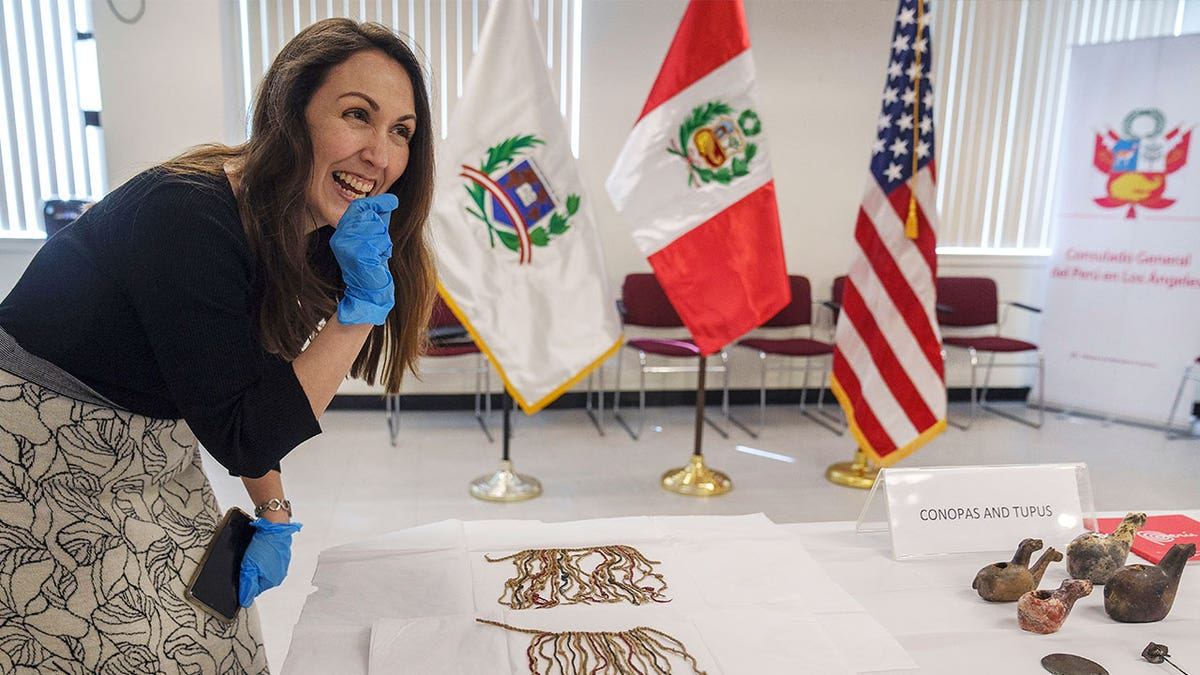Fox News Flash top headlines for April 24
Fox News Flash top headlines are here. Check out what's clicking on Foxnews.com.
The United States on Friday returned several Peruvian antiquities, including the intricate knotwork artifacts known as khipus, in a ceremony at the Los Angeles consulate.
The brief event came amid a push in recent years to have museums, universities and governments worldwide return cultural pieces to their home countries and tribal nations. Indigenous and African communities, in particular, have pressed institutions to reckon with their colonialist pasts and repatriate stolen or looted antiquities.
The items returned to the Peruvian consul general included two khipus, intricately knotted and colored sets of cords that experts believe were used by the Incas to count and keep records.
BELGIAN ART FOUNDATION TO EXHIBIT $5 MILLION T. REX SKELETON IN ANTWERP

Claudia Bastante, Peruvian Deputy-Counsel in Los Angeles and professional archaeologist, smiles as she looks at an artifact in Los Angeles on April 21, 2023. Several Peruvian antiquities were returned to its home country during a ceremony at the Los Angeles, California, consulate. (AP Photo/Damian Dovarganes)
The repatriated khipus were turned over to federal investigators two years ago by a private art gallery. They may have been donated to the gallery or abandoned there sometime between 2005 and 2012, authorities said.
Also repatriated were several sculptures that Los Angeles-based agents from the U.S. Department of Homeland Security had seized in a since-closed investigation dating back 15 years.
CLICK HERE TO GET THE FOX NEWS APP
The FBI last year repatriated several Peruvian artifacts that had been voluntarily surrendered to federal agents. Those antiquities included historical documents and a 17th century painting stolen from a Peruvian church in 1992. They also included a painting stolen from a different church in 2002 that was hand-carried into the United States by an art dealer, sold to an art gallerist in Santa Fe and later sold in 2016 to a buyer in California.
In 2021, the San Francisco Asian Art Museum returned two hand-carved religious artifacts — sandstone lintels dating back to the 9th and 10th centuries — to the Thai government. The antiquities had been stolen and exported from Thailand — a violation of Thai law — about 50 years ago and donated to the city of San Francisco, which owns the art museum.









































